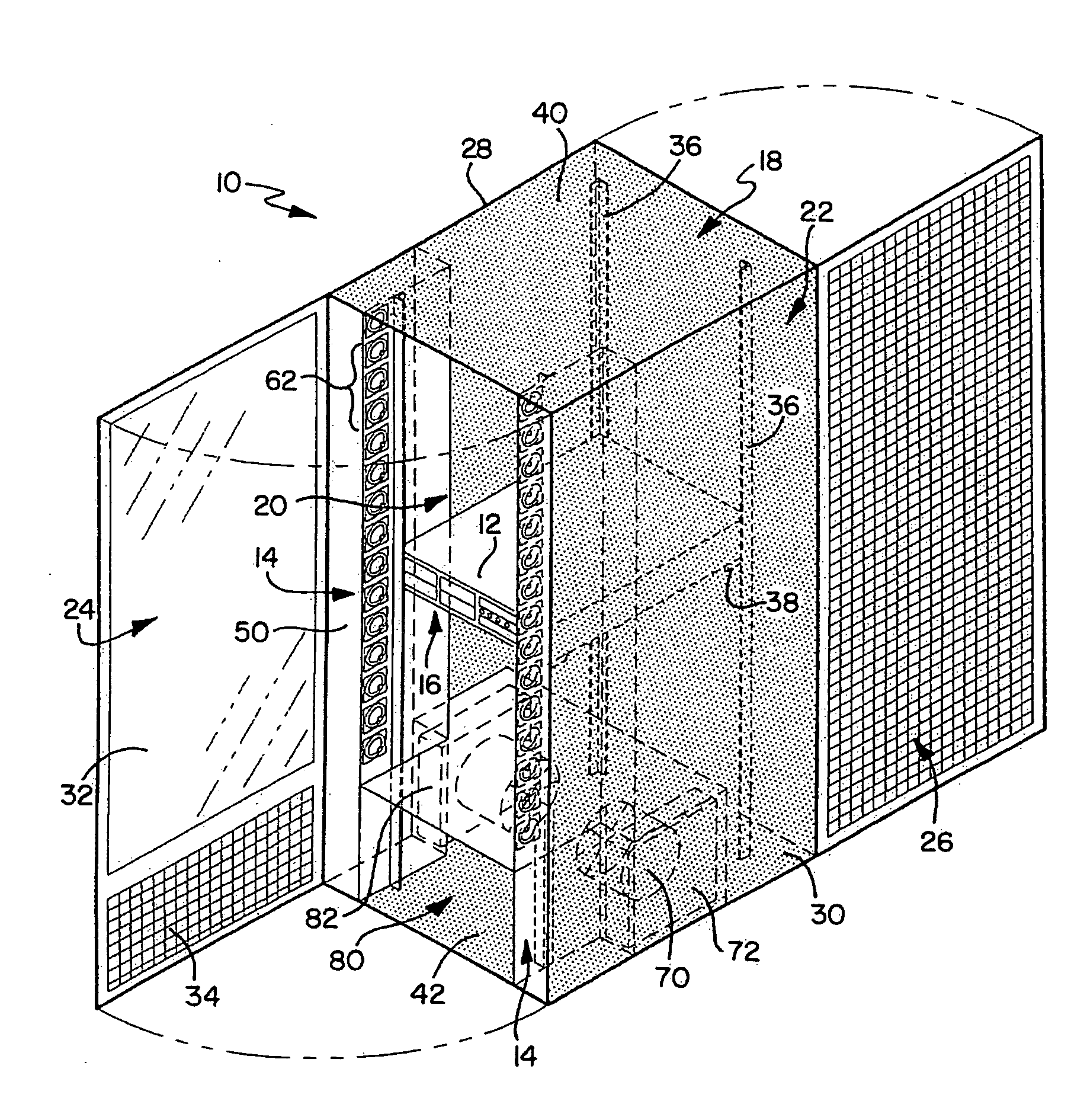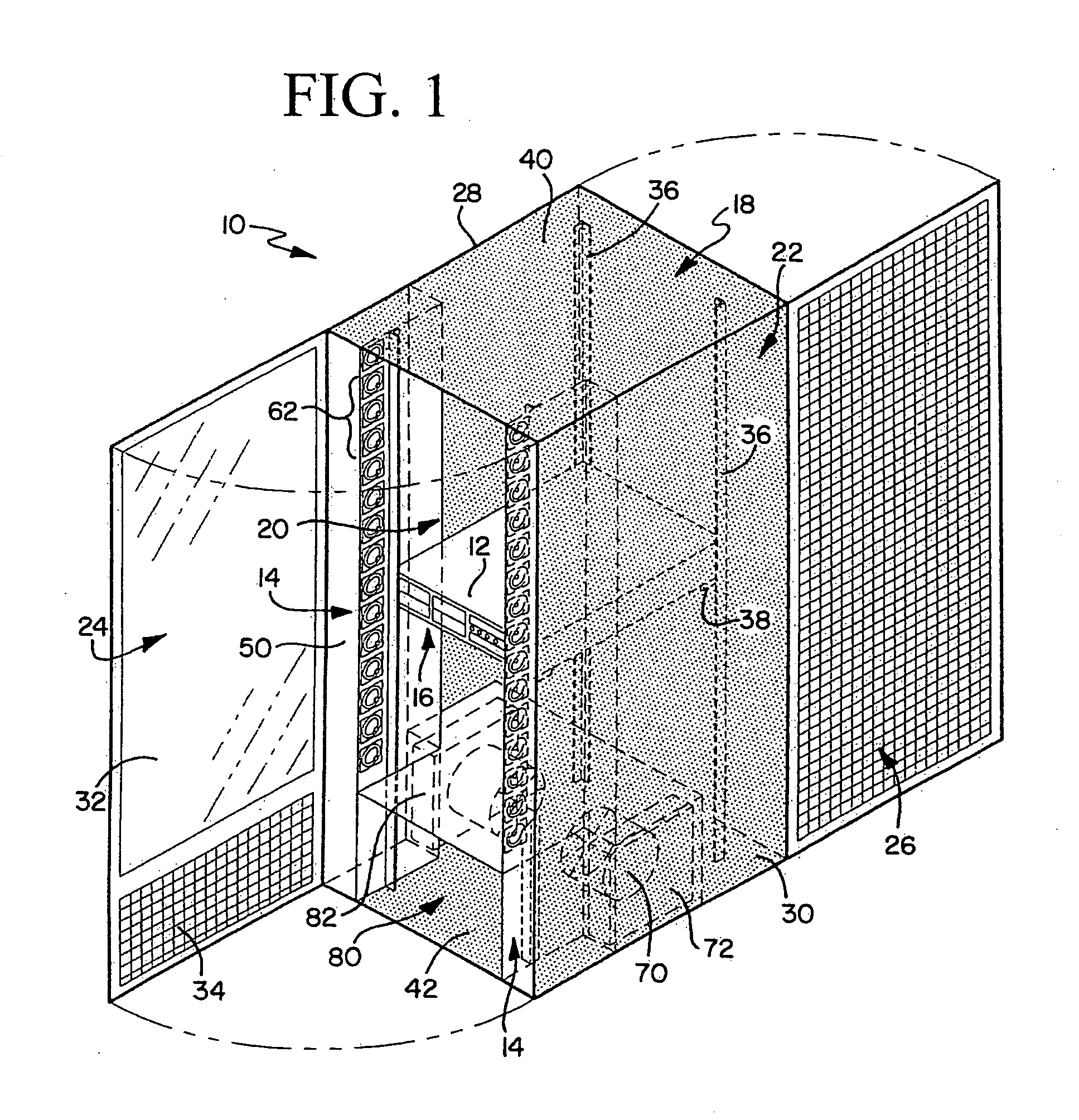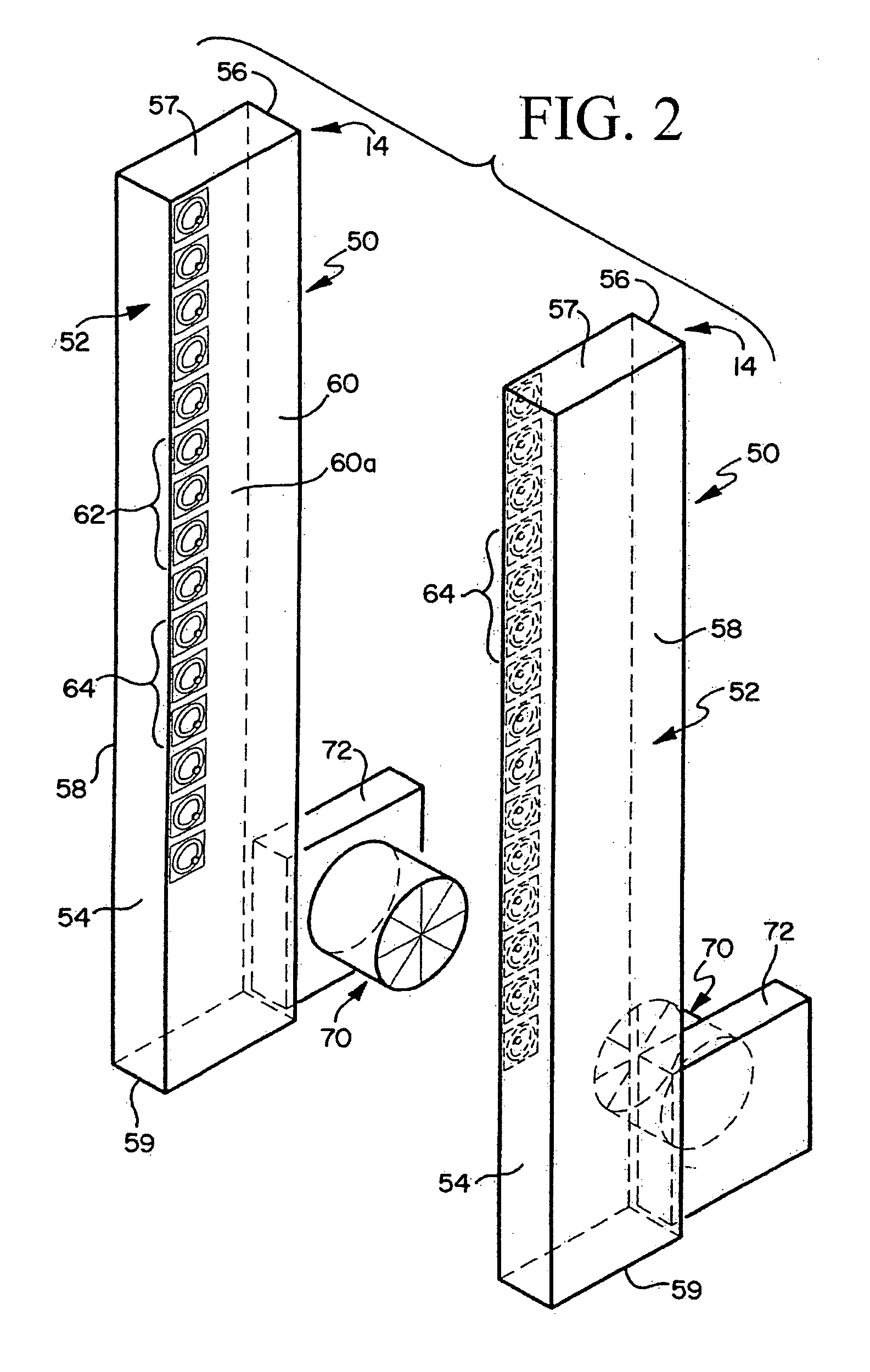Cabinet for computer devices with air distribution device
a computer device and air distribution technology, applied in the direction of electrical apparatus casings/cabinets/drawers, heating types, separation processes, etc., can solve the problems of large heat accumulation, large heat accumulation in existing cabinets, and major contributing factors to the failure of computer components within the cabinet. , to achieve the effect of reducing the temperature gradient within the cabinet, reducing the amount of heat generated by the devices and remaining within the internal chamber of the cavity
- Summary
- Abstract
- Description
- Claims
- Application Information
AI Technical Summary
Benefits of technology
Problems solved by technology
Method used
Image
Examples
Embodiment Construction
[0027] While this invention is susceptible of embodiments in many different forms, there is shown in the drawings and will herein be described in detail a preferred embodiment of the invention with the understanding that the present disclosure is to be considered as an exemplification of the principles of the invention and is not intended to limit the broad aspect of the invention to the embodiment illustrated.
[0028] Referring to FIG. 1, a cabinet 10 for housing computer devices or servers 12 is shown. The cabinet 10 has at least one internal air distribution device 14 that is configured to selectively distribute ambient air to a frontal portion 16 of the computer devices 12. In most installations, the cabinet 10 is placed in an air conditioned environment, such as an air conditioned data center, so the ambient air is generally cool air. The frontal portion 16 of the computer device 12 includes the front face and the front portion of the adjacent side walls of the device 12 . Altho...
PUM
| Property | Measurement | Unit |
|---|---|---|
| perimeter | aaaaa | aaaaa |
| permeable | aaaaa | aaaaa |
| heat | aaaaa | aaaaa |
Abstract
Description
Claims
Application Information
 Login to View More
Login to View More - R&D
- Intellectual Property
- Life Sciences
- Materials
- Tech Scout
- Unparalleled Data Quality
- Higher Quality Content
- 60% Fewer Hallucinations
Browse by: Latest US Patents, China's latest patents, Technical Efficacy Thesaurus, Application Domain, Technology Topic, Popular Technical Reports.
© 2025 PatSnap. All rights reserved.Legal|Privacy policy|Modern Slavery Act Transparency Statement|Sitemap|About US| Contact US: help@patsnap.com



